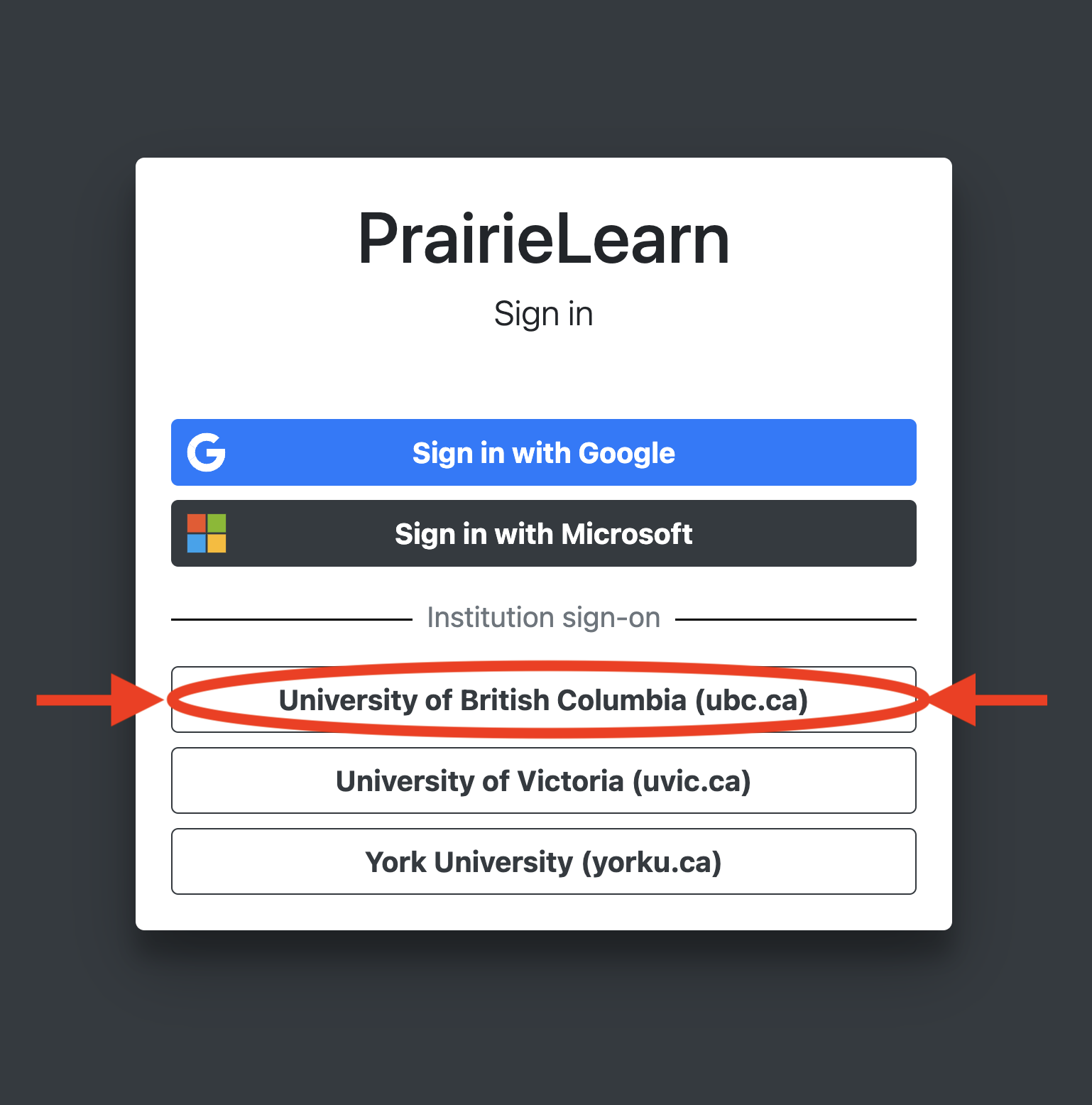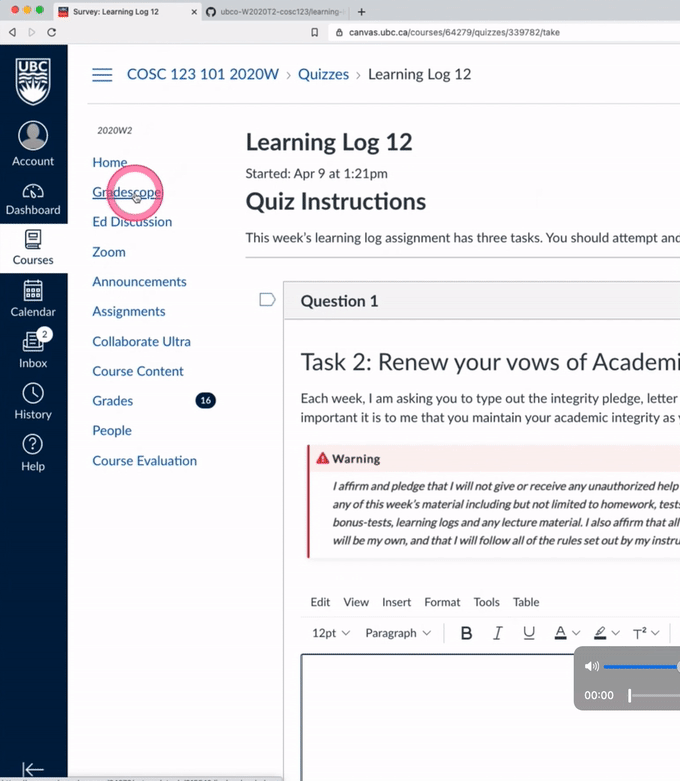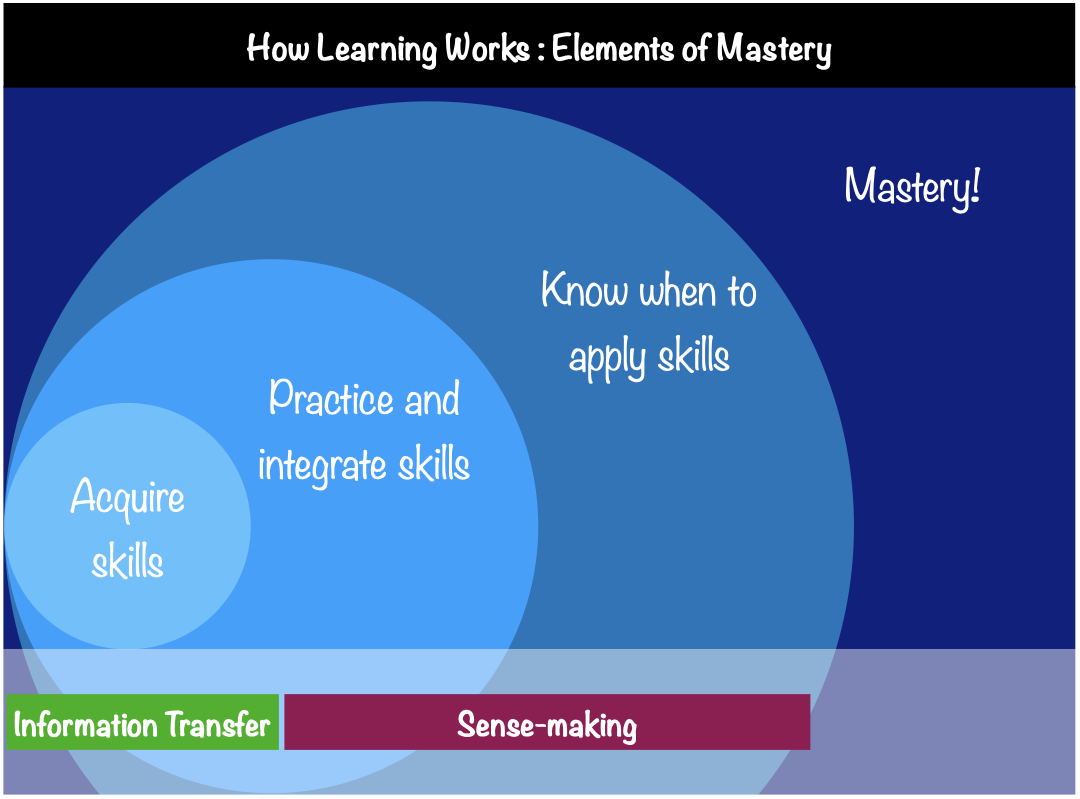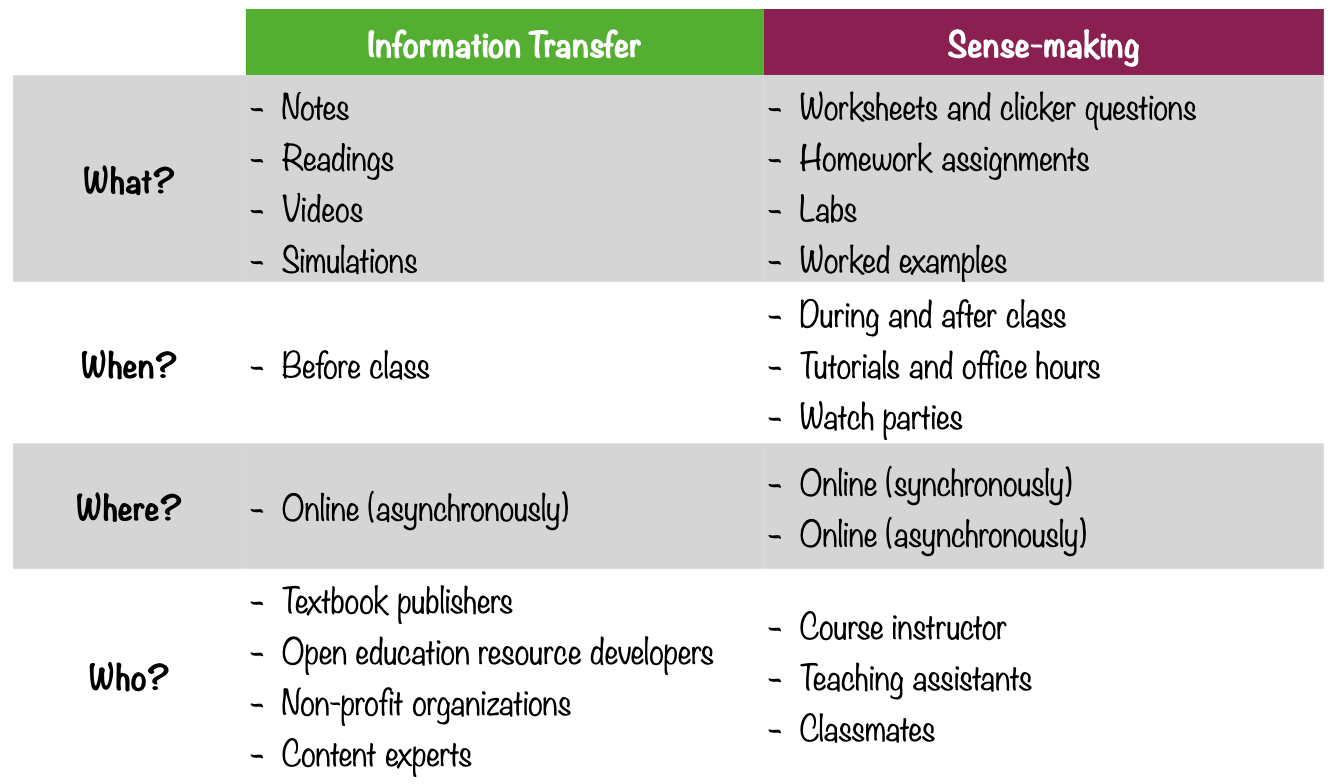

Unsyllabus#

Fig. 1 This course website is currently under construction. It will continue to be updated and will be released closer to the course start date. Photo by Mabel Amber from Pexels.#
Important Details#
Name |
Description |
|---|---|
Course |
PHYS 111 |
Term |
2023 Winter Term 2 |
Instructor |
Dr. Firas Moosvi (he/his/him) |
Lectures |
Monday, Wednesday, Friday from 1-2 PM: ROOM 100 |
Mode of Delivery |
In-person (All course activities and assessments, including the Final Exam, will be conducted in-person) |
Student Hours |
To get live 1 on 1 help in the course, use Zoom at various times (see below for schedule). |
Canvas URL |
|
Course Discussion |
To ask any course-related questions, use private (personal, not useful for anyone else) or public (helpful for other) messages on Ed Discussion |
You can find all the important term dates in the [UBC Academic Calendar](https://vancouver.calendar.ubc.ca/dates-and-due dates).
Warning
If there is a lab and/or tutorial listed on the SSC for this course, You must register for all course elements without conflicts, otherwise the department will remove you from the course! There are usually lab or tutorial exemptions for some students (i.e. those repeating the course) and instructions for that will be in this syllabus.
What do I need to purchase for this course?#
Being very conscious of the high tuition and technology costs, we have made efforts to remove the additional cost of taking this course. All course content, references, and resources provided in this course are free and open source, and can be considered open educational resources (OER).
Contact Us#
Team Member |
Pronounce as |
Contact |
Office Hour |
|---|---|---|---|
Dr. Firas Moosvi (he/his/him); Instructor |
Fur-az Moose-vee |
Contact via Ed Discussion |
TBD |
(TA) |
Contact via Ed Discussion |
TBD |
|
(TA) |
Contact via Ed Discussion |
TBD |
|
(TA) |
Contact via Ed Discussion |
TBD |
|
(TA) |
Contact via Ed Discussion |
TBD |
Evaluation#
The grading scheme for this course is:
Item |
Weight |
Due date(s) |
|---|---|---|
Learning Logs |
5% (10 x 0.5%) |
TBD |
Homework |
20% (10 x 2%) |
TBD |
Labs |
25% (10 x 2.5%) |
TBD |
Tests (& Bonus Tests) |
30% (5 x 6%) |
TBD |
Final Exam |
20% |
TBD |
There will be 5 tests in this course in an (approximately) bi-weekly schedule. For each of the tests, there will be a bonus test exactly one week later and the better score of the Test-Bonus Test pair will be taken.
Attention
All due dates in this course have an automatic 48 hour grace period after the due dates listed above. Any submissions submitted past the grace period will not be graded (with some exceptions).
Note
Please refer to this page for details on exam clashes, hardships, and cancellations.
Passing requirements#
All students must satisfy ALL conditions to pass the course:
Pass the Lab component with a grade of at least 50%,
Pass the Test and Exam components (together) with a grade of at least 50%,
Pass the Final Exam with a grade of at least 40%.
If students do not satisfy the appropriate requirements, the student will be assigned the lower of their earned course grade or, a maximum overall grade of 45 in the course.
Learning Intentions#
Pellentesque pellentesque ut arcu vel sagittis.
Sed faucibus at ipsum pharetra euismod.
Interdum et malesuada fames ac ante ipsum primis in faucibus.
Vivamus pharetra pretium dui, nec semper enim vehicula nec.
Quisque vel odio dui. Aenean ullamcorper arcu sit amet gravida dapibus.
Schedule#
This is the tentative plan for PHYS 111 this term. Things may change depending on many factors so this is subject to change.
Wk |
Date |
Topic |
Homework |
Lab |
Logs |
Test / Bonus Test |
|---|---|---|---|---|---|---|
0 |
Jan 11 |
About this course |
Diagnostic |
Lab X |
LL X |
Test 0: Course policies |
1 |
Jan 18 |
Kinematics in 1 D |
HW X |
Lab X |
LL X |
Diagnostic (Pre) |
2 |
Jan 25 |
Vectors and Coordinate Systems |
HW X |
Lab X |
LL X |
Test 1: Chapters 2 & 3 |
3 |
Feb 1 |
Kinematics in 2D |
HW X |
Lab X |
LL X |
Bonus Test 1 |
4 |
Feb 8 |
Force and Motion |
HW X |
Lab X |
LL X |
Test 2: Chapters 4 & 5 |
5 |
Feb 15 |
Reading Week (no new material) |
- |
- |
- |
- |
6 |
Feb 22 |
Dynamics I: Motion along a line |
HW X |
Lab X |
LL X |
Bonus Test 2 |
7 |
Mar 1 |
Newton’s third law |
HW X |
Lab X |
LL X |
Test 3: Chapters 6 & 7 |
8 |
Mar 8 |
Dynamics II: Motion in a Plane |
HW X |
Lab X |
LL X |
Bonus Test 3 |
9 |
Mar 15 |
Work and Kinetic Energy |
HW X |
Lab X |
LL X |
Test 4: Chapters 8 & 9 |
10 |
Mar 22 |
Interactions and Potential Energy |
HW X |
Lab X |
LL X |
Bonus Test 4 |
11 |
Mar 29 |
Impulse and momentum |
HW X |
Lab X |
LL X |
Test 5: Chapters 10 & 11 |
12 |
Apr 5 |
Review and recap |
Practice |
Lab X |
LL X |
Diagnostic (Post) Bonus Test 5 |
Getting Help#
The best way to get personalized help in this course is to attend the “Student Hours” we have scheduled for this course. They are all done on Zoom and this is time that the instructor and TAs have set aside to help YOU personally, 1 on 1! I understand it might feel intimidating to come to Student Hours, but we don’t bite! We would love to hear about you, what your interests are, and if you have any career advice. If nobody comes to the Student Hours, we end up sitting in a Zoom room all by ourselves, all alone, and sad.
A few other notes:
We will be using Ed Discussion for Announcements in this course.
For all course-related questions you can reach out to the teaching team including instructors and TAs via Ed Discussion.
You are encouraged to post questions publicly whenever possible so others can benefit. For private and personal issues, you can send private messages on Ed Discussion.
Any student may visit the student hour for any member of the teaching team (TA or instructor)! In other words, you can go to the student hour of ANY TA, not just the one whose lab/tutorial you are registered in.
Why should I take PHYS 111?#
Lorem ipsum dolor sit amet, consectetur adipiscing elit. Ut blandit faucibus fermentum. Fusce porttitor congue dolor, eget efficitur neque ultricies at. Nulla suscipit convallis elit, eu consequat felis. Quisque et malesuada justo, dapibus commodo enim. Sed malesuada turpis sed nibh dictum, a interdum dui tincidunt. Duis consequat magna non tortor dictum facilisis. In hac habitasse platea dictumst. Phasellus eu eros libero. Phasellus rhoncus eros vel metus porttitor porta. In et tellus finibus, mollis nisi sed, auctor est. Sed placerat ex at ligula eleifend, ac dapibus neque euismod. Suspendisse malesuada pretium dui, ac lacinia mi pellentesque eu. Sed volutpat enim sed feugiat malesuada.
Tip
Number one reason thing to take away from this is…
Syllabus vs. Unsyllabus#
Traditionally, there has been a culture at most higher education institutions for every course to have a document that sets expectation for how the course will be conducted, what students will be expected to do, and what they will learn in the course. The purpose of that document was for the instructor to communicate “what the course will be about” to students so they know what they’re getting themselves into. This document is typically called a “Syllabus” or a “Course Outline”. Over the years however, this document has morphed into something like a contract - a “terms of service” that students implicitly agree to by registering for the class.
This makes me somewhat uncomfortable as an educator - I don’t want to legislate how you learn and what you need to do to learn. I also don’t want there to be an unchangeable legal document governing the interactions between an instructor and a student. What I do want is to give you suggestions and guidelines supported by my personal experience as well as the latest literature on teaching and learning.
That being said, perhaps there are some advantages to having some elements of a course codified in a “legal document” - the “Syllabus”. For instance, the instructor for the course, the calendar course entry, the term dates, the final exam period, the passing criteria, how to file a grievance or complaint, and your responsibilities to uphold UBC’s commitment to equity, diversity, and inclusion. The items above are indeed permanent and unchanging, and deserve to be in the syllabus.
Other things, such as what you will learn, how and when you will do it are more flexible and fluid. For that, we have this unsyllabus.
What is the Unsyllabus?#
In contrast to the syllabus, the unsyllabus is not a legal document. Instead, it is a living document that serves students and adjusts to their needs and feedback. Dr. John Warmer describes this best in his article, “A syllabus is not a contract”:
… this [un]syllabus is not a contract, it is a living document which reflects the experiences, emotions, philosophies, and goals I bring to a particular course.
and also:
An [un]syllabus as a plan is a lot like an itinerary before a trip. There’s some definite highlights we need to hit, but if something that seems cool and worth doing crops up unexpectedly, we need to seize that opportunity in the moment. If something really bad happens (the equivalent of a norovirus breakout on a cruise ship) we may need to abandon something previously scheduled entirely.
Summary#
Having an adaptive syllabus is important to me as it allows me to be responsive to your feedback in a meaningful way. I invite you to be co-contributors to this unsyllabus, and use the tools provided to add your own annotations, questions, and suggestions on making this syllabus work for you. At various points in the term, I will invite you to provide feedback on how things are going in the class. You may use those opportunities (or any other using the anonymous feedback form or Ed Discussion) to propose adjustments to how the class is running for consideration.
Document |
Status |
|---|---|
Syllabus |
University-mandated, like a legal contract and contains university rules about conduct and behaviour; elements will not change. |
Unsyllabus |
Living document, responsive to student feedback and adaptable to circumstances; elements may change, usually to the benefit of students and of learning. |
Important
Please note that I have your best interests in mind, and it is highly unlikely that I will ever change the unsyllabus in a way that negatively affects the class, or even individual students. If you believe a change is affecting you negatively, please reach out to me on Ed Discussion, or submit your feedback using the anonymous feedback form.
Unsyllabus changes#
In this section, I will outline any changes that have been made to the unsyllabus as we go through the course. We will do our best to follow the plan outlined in this unsyllabus, but in case things go south, I will need to make adjustments to the contents and the schedule.
Any major changes to the syllabus (this page) will be documented here, as well as the date the change was made.
Change Date |
Summary |
Rationale |
|---|---|---|
DATA |
TBD |
TBD |
How do I do well in this course?#
For full details, please see the page How to do well in this course.
To whet your appetite on what you’ll read there, here are some guidelines on preparing yourselves for this course:
Learning is a contact sport.
Memorizing is not learning.
Understanding is learning and understanding should be your goal.
We’ll do lots of tests.
And some ingredients for your success:
Plan.
Prepare.
Engage.
Practice.
Collaborate.
Do not be fooled by familiarity of the material.
Practice Math.
… but I’ve never been good at physics or math!#
That’s okay! You’re still more than welcome in this course. I will do everything I can (within reason) to still make the course accessible to you. This course is designed with your success in mind. There are multiple opportunities for you to learn from your mistakes and improve your grades in nearly every aspect of the course. In my opinion, the best learning happens when folks are given the opportunity to make mistakes so they get over their fear of trying something! At the beginning of the term, we will all do a Math Diagnostic (not for marks) to check if you have the required math background for this course. If you do not, I have some supplemental material for you to catch up. My expectation is that you’ll complete the exercises and review the supplemental material in the first couple of weeks.
To summarize, if you’ve never been “good” at physics or math, come into the course with a healthy attitude, a desire to work for your success, and I have no doubt you will be successful in this course. If you ever want to talk about the course, or have any feedback you want to give me, do not hesitate to reach out to me!
… but I don’t even like physics or math!#
Believe it or not, I have no expectation that every student that takes my course will have an undying passion for the subject. Some of you may be forced to take this course by your programs, faculties, career interests, etc… Sometimes we all have to take courses that we think we don’t like, or enjoy. That’s fine! No judgement from me, you are more than welcome in this course. I just ask that you not make any snap judgements about the class, the material, the instructor (me), or the teaching team. Whatever your motivations are for taking this course, give us a chance, maybe you don’t HAVE TO be miserable taking this course! You might even enjoy the feeling of community and camaraderie that develops over the course of the semester :-).
I hope you’re not miserable, if you do feel miserable, come talk to me - maybe I can help you see the light at the end of tunnel?
Missed things#
What if I miss labs, tests, or the exam due to an illness, health, or other personal situations?#
Normally, most due dates in this course have a generous grace period. If you require an extension beyond the grace period, please contact the instructor on Ed Discussion (ideally before the deadline passes) to discuss your options.
Students who, because of unforeseen events, are absent during the term and are unable to complete tests or other graded work, should normally discuss with their instructors how they can make up for missed work. If ill health is an issue, students are encouraged to seek attention from a health professional. Campus Health and Counselling will normally provide documentation only to students who have been seen previously at these offices for treatment or counselling specific to conditions associated with their academic difficulties.
Tip
If you miss a course component due to an illness, health, or other personal situation, please reach out to me as soon as you are comfortable, and I’ll work with you to get you back on track.
What if I have dependents that rely on me for care and unpredictable emergencies may arise?#
Let’s talk, send me a private message and we can discuss it. I do not necessarily need to know all the personal details, just a high-level summary of your situation and what you think an ideal solution would be.
I’m sure we will come to some agreement, generally the earlier you let me know of any special circumstances or accommodation, the more I’ll be able to do for you!
What if I have to miss a deadline because of a wedding, birthday, funeral, religious holiday, or personal event ?#
No problem! There’s not even any need to tell me, or ask for permission to miss due dates. The course is designed to give you maximum flexibility:
Every deadline has a 48 hour grace period that is automatically applied.
There is no late penalty if you use the grace period
You can use the grace period an unlimited amount of time in the course (though if it happens every week and for every assignment, I might check in with you and gently encourage you not to leave things to the last minute)
Tip
Remember, if you miss a Test for whatever reason, you can make it up the following week in the bonus test!
If you miss a deadline by more than the grace period, the general course policy is that you will not be able to get full credit for it, and in many cases, may even get a 0 for it. In the cases of Tests, it is not possible to get partial credit, or complete it at times other than within the scheduled windows. In some cases, I reserve the right to grant an extension or make alternate accommodations as needed.
What should I do if I need accommodations to be successful in this course?#
Accommodations are intended to remove barriers experienced by individuals with disabilities. As a matter of principle, UBC is committed to promoting human rights, equity and diversity, and it also has a legal duty under the BC Human Rights Code to make its goods and services available in a manner that does not discriminate. Policy 73 (Accommodation for Students with Disabilities) sets out principles and processes governing the accommodation of students with disabilities.
All accommodations for this course are handled through the Centre for Accessibility and I encourage you to contact them to book an appointment.
Compassion#
Overall, my philosophy is that I think we could all use some extra compassion and humanity wherever and whenever it’s possible. If you’re going through something that is affecting you (in the course or otherwise), you are always welcome to come and talk to me about it. If I am not able to help you myself, then I can probably direct you to the right person or resource on campus. If you need extra help, or extra time to deal with something you’re going through, just ask. You will never owe me an explanation about your physical health, mental health, or those of your family members, friends, etc… I will believe you, and I will trust you. I will not judge you, nor think any less of you. I will do everything in my power to work out something that is both reasonable and fair. This, I promise!
Course Tools#
Warning
I will be the first to acknowledge that my courses are usually heavily reliant on learning technologies. I strongly believe that learning technologies are essential (for me) to give you my students a good experience in the course. Many times during the course you may be frustrated why we need to use so many different tools, and why there isn’t one tool that does everything. Believe me, this frustrates me too (particularly because each of your instructors will be using different tools depending on their needs), and is something that I’m working on improving. At the moment, the reality is that many learning technologies often only do one thing very well. This of course means that other functionalities take a back-seat and exist merely to check a box on their marketing website (just to say they have the feature).
In all of my courses, before selecting a learning technology, I do a very careful scan of the landscape, weigh the pros and cons, consider the privacy implications, the convenience aspects, and then select the ones that I believe will best support my teaching goals at minimal inconvenience to students. In general, I also use tools that are fun to use!
I hope you will be patient with all the tools used in this course, I hope I can demonstrate value to you by using them in our course. If you have any feedback about my usage of the tools, I’d be happy to get your (anonymous) feedback and though it may not always be possible to make changes mid-semester, I will certainly keep your feedback in mind as I plan the next iteration of this course.
All tools used in the course will be used in a FIPPA-compliant manner, with your privacy top of mind. New tools may be added to the course as the need arises, and I will update this section with the appropriate information and make an announcement if a new tool is added midway through a course.
There is no cost to the student for any of the tools used in this course.
Tip
Even though the tools above are required for this course, if you have a moral or legal objection to my use of these tools, please do reach out to me and we can likely find an acceptable accommodation.
Required Tools#
In this course, we will be using the following required learning technologies (privacy policies linked):
Ed Discussion [Required]#
In this course, we will be using Ed Discussion for class discussions. You will need to sign up for a (free) Ed Discussion account to participate in the discussions for this course. The system is highly catered to getting you help fast and efficiently from classmates, the TA, and myself.
Tip
In general, please do NOT email questions to the instructor and TAs unless it is a legitimate emergency (or if you cannot access Ed Discussion). If you do this accidentally, it’s okay - we will send you an automated response letting you know that emails will not be answered and you should re-post your question on Ed Discussion.
Warning
Data on Ed Discussion is stored on servers outside Canada. When you access this site by clicking on the link through Canvas, you are being transferred to these servers. In order to protect your identity, UBC obfuscates your user ID before it is sent to the site. However, Ed Discussion does require you to create an account on their servers. While Ed Discussion adheres to strict U.S. privacy regulations (FERPA), UBC cannot guarantee security of your private details on servers outside of Canada. Please exercise caution whenever using personal information. You may wish to use a pseudonym to protect your privacy if you have concerns.
GitHub [Required]#
Git is a modern and open-source distributed version control system that aims to facilitate collaborative software development, data analysis, and even writing poetry. We use Git because it is technically sound, very good at what it does, and is a system where many communities (perhaps uniquely!) have largely converged on a single system (with some exceptions, see below) for version control. In the 2022 Stack Overflow Developer survey, 93% of respondents reported using Git as their system of choice for version control.
Git is the underlying system that facilitates distributed work on code bases, and GitHub is one cloud-based provider that hosts Git repositories, and offers useful convenience features to facilitate collaboration between multiple developers (and even single developers). Of course, there are alternatives to GitHub for hosting Git repositories (similar to how there are various email providers that will host your email like Google, Yahoo, Proton Mail, etc…). We chose to use GitHub.com mostly because of the existence of GitHub Classroom, which helps instructors with a lot of the logistics of repository management.
Warning
Data on GitHub (typically your course labs, assignments, and projects) is stored on servers outside Canada. When you access this site by clicking on the link through Canvas, you are being transferred to these servers. GitHub does require you to create an account on their servers. There is no requirement from this course for you to share any personal information on GitHub servers. UBC cannot guarantee security of your private details on servers outside of Canada. Please exercise caution whenever using your personal information online. You may wish to use a pseudonym account to protect your privacy if you have concerns about this.
Here is a quick video to show you how to create a GitHub account:
PrairieLearn#
PrairieLearn is an open source, extensible online assessment platform built on modern web technologies and is available to students at no cost. This system replaces commerical textbook publisher platforms for homework assignments such as MasteringPhysics, WileyPlus etc. In the past, instructors were forced to use these expensive options and pass these costs on to the students, to the tune of $60/student per course with just a temporary “subscription” to a textbook. Today, thanks to the emergence of high-quality open-education resources (OERs), student advocacy (see the UBC Senate policy) and institutional support (the TLEF and the ALT-2040 projects), and free and open source software (FOSS) we have alternatives.
In the first week of class, we will do a demo of the PrairieLearn platform together, but if you’d like to get started, you can join the course and do the first assignment by clicking here.
Important
You should login by clicking “Sign in with UBC” and provide your UBC CWL credentials:

Link your Canvas account to Gradescope#
On the left sidebar in Canvas, click on Gradescope.

You should then be guided through a series of steps to create an account, set a password, and link it to our course.
This is very important for you to do as it’ll be our primary mechanism for delivering you feedback in this course.
Warning
Please verify that you do not have duplicate Gradescope accounts, this is more likely to happen when you have used Gradescope in the past with a different emails, though it has been known to happen to students who accidentally created two accounts on initial signup.
If the email associated with Gradescope is correct, things should be all good. If not, then you may need to merge multiple accounts together, see details on how to do that here.
What type of information will I collect about you in this course?#
I am very aware of the surveillance culture that has permeated our society and heralded the End of Privacy as we know it. That being said, as an instructor, I care tremendously about your learning and the course-related data that is collected about you is extremely valuable. Broadly speaking, this relatively new field is called Learning Analytics. Learning Analytics involves the collection and analysis of data about learners for the express purpose of improving their learning by optimizing teaching and learning practices.
All of the tools above log data about your activity that can be used to improve the quality of teaching and learning. In this course, I intend to use this information to:
view overall class progress (in aggregate),
track your personal progress in order to provide you with personalized feedback,
track participation in discussion forums
improve the course and your learning,
explore students actions in the course,
provide you feedback on your progress.
Unfortunately, at the moment it is not possible to opt-out of the data collection process, but if you like, you may opt-out of the process where I use the data to give you personalized feedback. To opt-out, please complete this form at any point in the course. You may opt-out with my full support, I respect your decision and applaud you for your netizenship!
Teaching Philosophy#
For a detailed description of my teaching philosophy and values (including a list of references and citations), you can read it here. Here are the key principles I intend to apply in this class:
Student learning is vastly improved through active learning
Learning technologies must be leveraged to scale instructor effort across multiple classes.
Inter-disciplinarity is the future of education.
Effective teaching is inclusive teaching.
How will this course be taught ?#
This course will be taught as a Blended Learning classroom where some elements of a flipped classroom will be mixed with a more traditional coding classroom with live demos, clicker questions, and worksheets. Briefly, this requires students to watch videos and engage with the assigned reading prior to the classroom meeting (knowledge transfer). During the class meeting, the instructor guides students through clicker questions, worksheet problems, and other activities to help the students make sense of the material (sense-making). See Fig. 2 for a mental model of how learning works [Ambrose et al., 2010].

Fig. 2 To develop mastery in a concept, students must first acquire the necessary skills, then practice integrating them, and finally know when to apply what they have learned. This figure was adapted from Figure 4.1 of the book “How Learning Works”. The terms “knowledge transfer” and “sense-making” applied in this context is generally attributed to Dr. Eric Mazur.#
What does this mean in practical terms?#
Fig. 3 shows a handy table to help guide you and organize your learning in this course:

Fig. 3 This table describes how I think each course activity should be classified between knowledge transfer and sense-making.#
Academic Integrity#
How do I go through this course with integrity?#
I want to be proud of your work in this course, and I want YOU to be proud of yourself as well! That cannot happen if you make unethical decisions, including (but not limited) to cheating or plagiarism. According to the scientific literature, the most common reasons students cheat are:
Fear of failure and life consequences
Peer pressure, including an inability to say no to help others cheat
Perceived societal acceptance of cheating (Lance Armstrong, Barry Bonds, Enron, Wall Street & the The Big Short)
Desire for success without the time/desire to put in the work needed
Strict due dates and due-dates
Requirement from instructors to memorize facts, figures, equations, etc…
High-stakes exams with no recompense for “having a bad day”
Peers cheating with no consequences or penalties
Unclear expectations on what constitutes academic dishonesty
Inadequate support from instructor and teaching team
Though I sympathize with students and the stresses of your busy lives - in my opinion, there is no good reason to cheat. I have tried extremely hard to make this course focused on learning rather than grading, and where grading is needed, to have policies that are as student-friendly as possible. In particular, I hope (and expect) that the following features of the course should eliminate your temptation to cheat or plagiarize:
48 hour grace-period on all due dates and due dates.
Long testing window so you can start the tests whenever you’re comfortable.
Weekly learning logs, homework and reading reflections to make you think about your learning (metacognition).
Each test has a “bonus test” available one week later; for each test, we will take the better score of the pair.
No high-stakes exams (the single largest assessment item is the final exam).
All course assessments are completely open book, open notes, and open web (except for cheating websites like Chegg, CourseHero, Slader, Bartleby, etc…)
Plenty of TA and instructor student hours and several outside of normal business hours.
Class website that outlines exactly what you should do when to help you manage your time.
Tonnes of supplemental materials including other instructional videos in case you want a different perspective.
Weekly prompt to accept the integrity pledge to keep you accountable.
A true willingness from the instructor (me) to help you learn and succeed in this course!
With these features, and several other little things, I sincerely hope that you will consider completing this course with maximum integrity so that you never have to feel guilty, ashamed, or disappointed in yourself and your actions!
A more detailed description of academic integrity, including the University’s policies and procedures, may be found in the UBC Academic Calendar.
What is considered academic dishonesty in this course?#
To make it even easier for you to decide what isn’t allowed, below is a list of things that I definitely consider to be academic dishonesty:
Asking others for their work in the course (whether question by question, or all at once)
Sending others your work in the course
Doing tests collaboratively (tests must be done by yourself and alone)
Sending others your test questions and/or answers
Sharing any course material onto Chegg, Course Hero, Slader, or other similar sites
Searching for solutions to course material on Chegg, Course Hero, Slader, or other similar sites
Blindly googling the question in hopes of finding someone who had a similar question and then copying their answer
Note, googling to find resources to understand specific concepts or general ideas is highly encouraged!
Having a tutor/friend/nemesis complete and submit your work for you
Copying and pasting code, equations, text explanations, prose, etc… without attribution
Manipulating the learning platforms we use to reverse engineer the randomization algorithms, hacking the timer functionality, or other similar technical malfeasance.
What should I think about if I’m considering withdrawing from the course?#
First of all, I’m sorry you’re having trouble and are considering withdrawing from the course! This is no problem, and I will not be personally offended or upset you need to do this, I encourage you to do what you feel is right for you and your situation. Below is some information that might be helpful for you in making the decision.
Warning
Please note that it is the student’s responsibility to check the withdrawal dates as [listed in the UBC Calendar](https://vancouver.calendar.ubc.ca/dates-and-due dates).
Withdrawal type |
Effect on Transcript |
Tuition refund |
|---|---|---|
Before 11:59 PDT on January 22, 2024 |
None |
100% refund |
Before 11:59 PDT on March 26, 2024 |
W on transcript |
|
After 11:59 PDT on March 26, 2024 ^ |
W on transcript |
^ Note: Withdrawal after this date cannot happen without additional approvals, see here.
There are factors other than money and your transcript to consider as well, including your mental health, graduation requirements/timelines, course load requirements, eligibility for student loans, bursaries, scholarships etc. I advise you to read a list of some considerations here and consult with an advisor if you have additional questions.
Warning
International students have additional factors to consider when withdrawing - you are urged to follow-up with an advisor and see the frequently asked questions here.
Acknowledgements#
The syllabus was constructed and adapted from many other templates and examples. Below is the list of resources I have used to put this syllabus together:
Physics 117 (Instructor: Dr. Simon Bates)
Psychology 417A-951 (Instructor: Dr. Catherine Rawn)
Land Acknowledgement#
UBC’s Point Grey Campus is located on the traditional, ancestral, and unceded territory of the xwməθkwəy̓əm (Musqueam) people. The land it is situated on has always been a place of learning for the Musqueam people, who for millennia have passed on their culture, history, and traditions from one generation to the next on this site.

References#
- 1
Susan A. Ambrose, Michael W. Bridges, Michele DiPietro, Marsha C. Lovett, and Marie K. Norman. How Learning Works: 7 Research-Based Principles for Smart Teaching. Jossey-Bass, San Francisco, CA, 2010. ISBN 978-0-470-48410-4.
